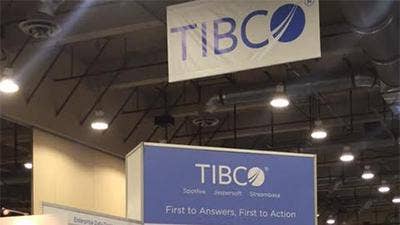The Citrix-Tibco Deal: 5 Things To Know
“We look at this transaction, we think there is a lot of potential in improving Citrix’s channel engagement,” a high level source close to the deal told CRN.

Questions remain around what opportunities for partners will emerge from a combined company of virtualization and cloud services provider Citrix Systems and data integration and analysis software developer Tibco.
But even as the details take shape around the $16.5 billion deal by Vista Equity Partners and Elliott Management affiliate Evergreen Coast Capital, a high level source close to the deal told CRN that the plan is to improve Citrix’s channel execution.
“We look at this transaction, we think there is a lot of potential in improving Citrix’s channel engagement,” the executive said.
[RELATED: Citrix Partners: Go-Private Deal Hinges On Restoring ‘Heart Of True Innovation’]
More details on a channel partner program for the combined company with new incentives are expected to come soon after the deal closes midyear.
“The job for us is to figure out the best way to go to market with this now larger portfolio of software products,” said the executive. “And I think we‘re going to want to be in position to roll that out relatively quickly.”
Here are five things to know about the Citrix-Tibco deal.

Two Very Different Companies
Citrix offers collaboration tools, cloud services and security tools that seem tailor-made for a long-term remote workforce. The company, however, “executed poorly on its shift to a subscription/SaaS model and has struggled to capitalize on the demand tailwinds in the VDI/DaaS market brought around by COVID,” according to a report by investment bank William Blair.
While the company has historically embraced the channel, company executives have publicly admitted to “some missteps” in its go-to-market strategy and promised new investment in the channel.
Citrix has pledged to revamp incentives to make financial benefits more predictable for partners, help increase the partner role post sale and align partners with Citrix’s priorities, including moving customers to the cloud and packaging more Citrix offerings to create end-to-end digital workspace services.
Citrix’s channel partner program has existed since its founding in 1989.
Tibco, founded in 1997, started its partner division in 2017 and unveiled its 2021 TIBCO Partner Program in December 2020.
Tibco’s product suite includes tools for data analysis, virtualization and management and counts fewer partners in its ecosystem. Among the company’s partners are Accenture and DXC Technology, No. 1 and No. 4 on CRN’s 2021 Solution Provider 500.
In CRN’s 2021 Channel Chiefs, Tibco reported that it expected an increase in channel sales as a percentage of overall company sales and decreasing the number of partners. It reported an increase in market development funds (MDF) year over year.
Citrix, meanwhile, reported expected increases in channel sales as a percent of overall company sales, an increase in the number of partners it would work with and MDF to stay the same year over year.
According to the William Blair report on the deal, “While technical synergies here are not obvious, the buyers believe that ‘the combined company will be positioned to provide complete, secure, and optimized infrastructure for enterprise application and desktop delivery and data management to advance hybrid cloud IT strategies and meet the needs of the modern enterprise.’”
The report continues: “The combination with TIBCO … will provide Citrix with sophisticated integration and analytical capabilities that could help the company execute on its Intelligent Workspace vision.”
A high-level source close to the deal told CRN that the lack of competition between the two company’s diverse product sets was an attractive part of merging the companies. Opportunities should emerge for both enterprise customers and small- to medium-sized businesses (SMBs) with the new integrated product set, the source told CRN.
“The products themselves don‘t compete with each other,” the executive said. “However, the buyer within organizations is usually the same people or the same group of people. And so we’re selling into the CIO and IT groups. And we think there‘s a lot of distribution opportunity. And I think that that’s true for very large enterprises, and that‘s also true for our enormous base of SMB customers that are typically engaging with the channel.”
Once the acquisition is complete, Citrix will become a private company, will continue to operate under the Citrix name and brand, and will remain based in Fort Lauderdale, Fla. Tibco is based in Palo Alto, Calif.

Private Equity Firms With Tech History
Citrix is being bought by Vista Equity Partners and Evergreen Coast Capital, the latter an affiliate of Elliott Investment Management. Tibco has been owned by Vista Equity Partners since 2014.
Reports of a potential deal with Elliott, Vista and Tibco popped up in December. A deal with Elliott came up in the fall.
Elliott Management previously bought a stake in the company in 2015 and Elliott partner Jesse Cohn joined the board. He left in 2020, according to a Citrix statement from the time.
Citrix previously explored sales and spin-off strategies in 2017 and 2015.
Elliott is invested in application security company F5 Networks and sold SonicWall last year. It participated in the purchase of purchased Dell’s software assets—which included SonicWall as well as IT administration and security company Quest Software—in November 2016 for more than $2 billion.
Vista has a long history with investing in technology companies. In application development, Vista made investments in application developers Sonatype and Mabl and it acquired Applause and SmatBear, according to the company’s website.
In collaboration platforms, it owns visual communications platform provider Four Winds Interactive and application development tools provider Quickbase. It invested in visual collaboration software provider Lucid. Vista sold work management platform Wrike to Citrix in February 2021, according to Vista’s website.
In data and analytics, beside Tibco, Vista owns customer data platform BlueConic. In enterprise resource planning, Vista has invested in Advanced, Aptean, Vena It owns Arcos and Dispatch. It sold Trintech in 2017. In IT operations, Vista owns Apptio and LogicMonitor. Vista held ownership positions in Datto and Jamf went public in 2020.
In security, Vista is invested in Infoblox, KnowBe4, Menlo Security and Ping Identity. It owns SecureLink, according to the firm’s website.
Vista and Tibco acquired data analytics company Information Builders in 2020 and data asset management services provider Orchestra Networks and data flows automation company Scribe Software in 2018 to add to Tibco.
More acquisitions are possible to continue the growth of the combined company, the source \told CRN.
“We think this can be a platform for mission critical infrastructure software,” the person said. “Our aspiration is to use this new platform with the kind of scale to invest in both in organic innovation but also in M&A to keep growing the portfolio and growing the different types of products that we can sell both directly and also through our channel program.”

Questions Remain On Leadership
The investors along with key executives are are still making decisions on the leadership of the combined company, the source told CRN.
“We‘ll be taking people from both organizations to build the best team that we can,” the person said.
For now, Citrix is led by Bob Calderoni (pictured), interim president and CEO after David Henshall stepped down in the fall. In a recent earnings call, Calderoni promised “to shore up our channel programs and put in place the right incentives for our channel partners. And we need to focus sales investments on direct selling quota-carrying individuals and eliminate excess investments in overlays and shared commissions.”
Citrix made interim channel chief Mark Palomba permanent last year after he began handling duties after Bronwyn Hastings left in May for Google Cloud.
Tibco’s CEO is Dan Streetman, who’s led the company through the acquisition of business analytics pioneer Information Builders and the subsequent wave of product expansions and enhancements.
Its channel chief is Tony Beller, more formally known as Tibco’s senior vice president of worldwide partner ecosystem and OEM sales. Beller told CRN that the company has trained and certified 12,000 partner consultants on Tibco software in 2021, doubling the number of certified consultants overall.

Channel Still Important
The high level source close to the deal told CRN that partners were “disappointed” with company decisions during the transition to a software-as-a-service model, but “the channel has “always been critically important to Citrix.”
“We look at this transaction, we think there is a lot of potential in improving Citrix’s channel engagement,” the executive said.
With about 400,000 customers,100 million users and 98 percent of the Fortune 500, Citrix needs partners to serve its base, the executive said.
The executive expects cross-selling from both Tibco and Citrix to occur, but Citrix has the larger installed base. Furthermore, he said, partners can expect to see further partnerships between Citrix and public cloud providers.
Bob Calderoni, Citrix’s interim president and CEO, has acknowledged publicly that the company needed to work better with its partners.
“The channel is still there. The channel hasn’t gone away,” Calderoni said on the call. “They’re not selling somebody else’s products. They’re just focusing on other parts of their business. And like any part of a sales organization, and the channel is part of our sales organization, we want to make it more profitable for them to do business with us.”
In October, Tibco CEO Dan Streetman (pictured) told CRN that partners play an important role in extending the company’s software and adding capabilities for vertical industries.
“As we deliver innovation faster and faster, [partners’] ability to keep pace is important,” Streetman said. “We’re very excited about unlocking the power of our partner ecosystem, certainly for delivery and for customer success, but also innovation for specific use cases and being able to unlock the power of real-time data.”

Partner Expectations Are High
Citrix channel partners told CRN they are cautiously optimistic about the deal for private equity firms to take the virtualization vendor private and merge it with Tibco.
Partners told CRN that they are looking for the investors to double down on the technology innovation and partner commitment that made Citrix a VDI powerhouse.
Mike Strohl, the president and CEO of Entisys360, a six-time Citrix partner of the year based in Concord, Calif., said that the private equity companies behind the deal – Vista Equity Partners and Evergreen Coast Capital, an affiliate of Elliott Investment Management – must restore the long-time software innovation that has been at the heart of the VDI powerhouse’s success.
“It is too early to tell whether this is going to be good for clients and partners, but the next step needed to be taken,” said Strohl. “I hope that Vista and Elliott pay heed to the value of the Citrix channel partners and how essential they are to the ongoing growth and prosperity as it relates to the Citrix platform. I hope with their investment power that the heart of true innovation is restored within Citrix.”
The CEO of one Citrix partner, who did not want to be identified, said the combined company faces a big challenge in unifying the technology products of both companies. “We are selling big data solutions every single day and not once has Tibco been part of that conversation,” the CEO said. “If they are thinking they are going to make me into a Tibco reseller that is a different conversation.”
Ray Wolf, CEO of A2K Partners, a Southlake, Texas-based Citrix partner, told CRN in an interview that he’s glad to see the deal happen but he wants to see Citrix focus on business value looking ahead.
Citrix is “essentially trying to play catch up on cloud subscription – but the destination of catching up on cloud subscription is not exciting at all,” Wolf said. “It may financially be good for them, but from a partner and for existing customers or new customers, we’re like, ‘What are you going to do new with the technology? Why do I want to continue investing? What is the future-proof story for Citrix?’”
Wolf wants to see Citrix thinking about digital adoption platforms and simplifying the process for partners and customers to get to contracts.
“I need an innovation partner,” Wolf continued. “Citrix has every ability to be successful when there’s transformation. They have a solid base, a loyal customer base. Their technology works. They just now need to come out with meeting the current and the future requirements of the customer and give them confidence they can get it done.”
Michael Goldstein, president and CEO of Fort Lauderdale, Fla.-based Citrix partner LAN Infotech — which is also a member of CRN’s 2021 Security 100 — told CRN in an interview that he’s glad the long saga of Citrix possibly going private has come to an end.
Goldstein said that he stands by Citrix’s technology and keeping up with innovation. But the company needs to focus on small business customers and its channel partners.
“It finally puts a period at the end of the sentence,” Goldstein said. “You’ve seen them change with the times. Their products are pretty amazing. Hopefully, they’ll be more for small business over time versus enterprises.”
He said he has faith in the current channel leaders making the right changes for go-to-market to better involve partners.